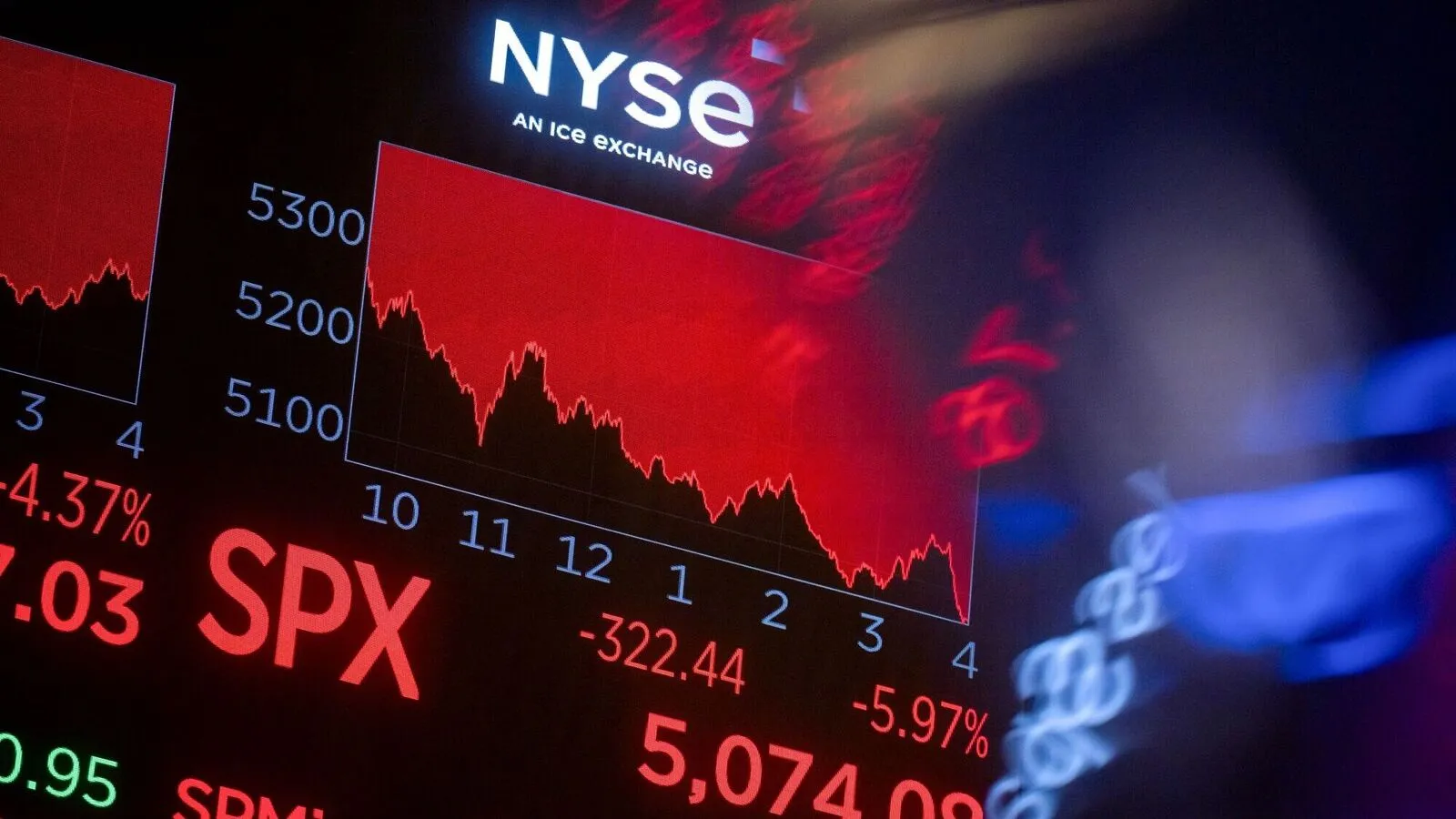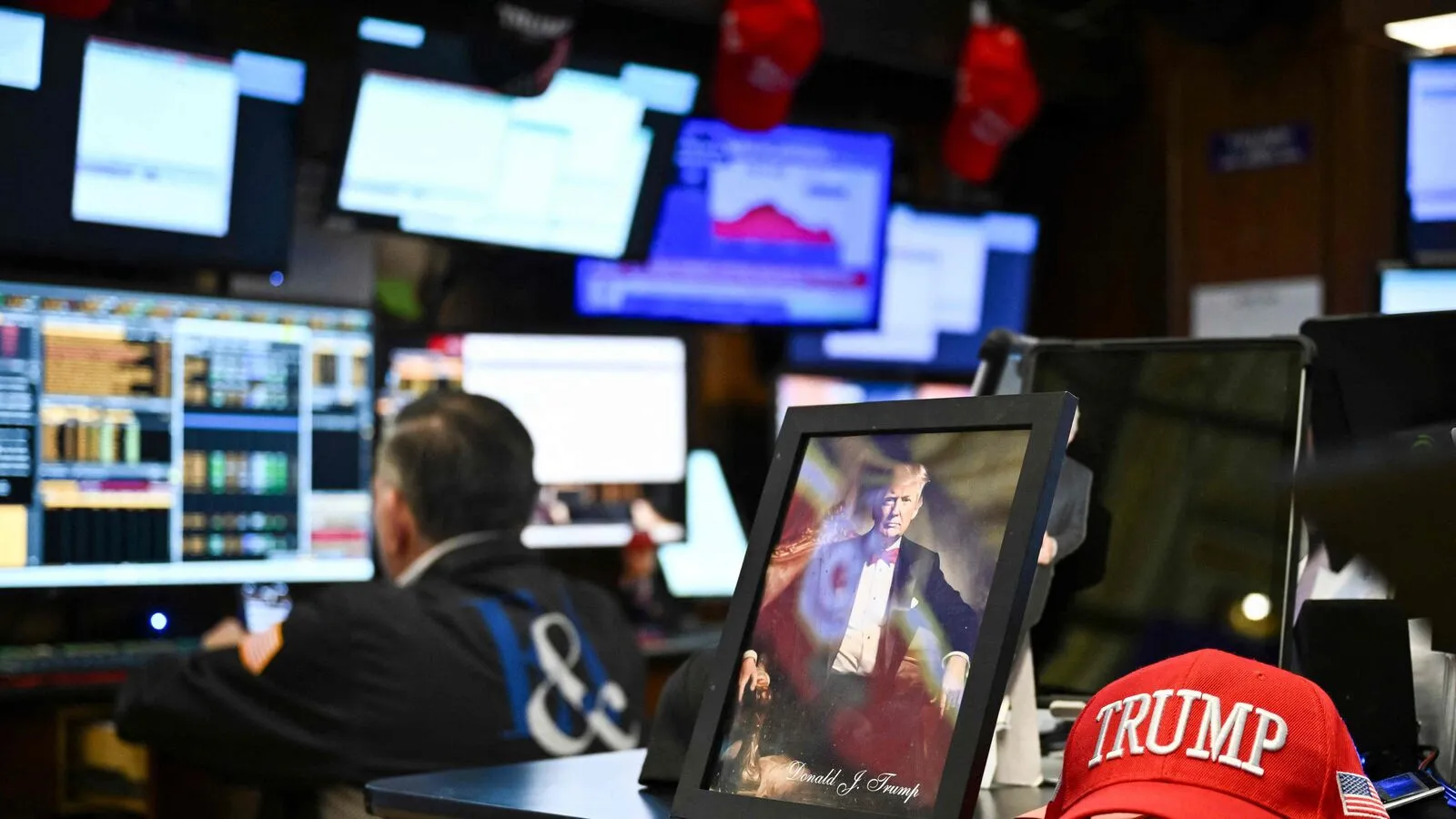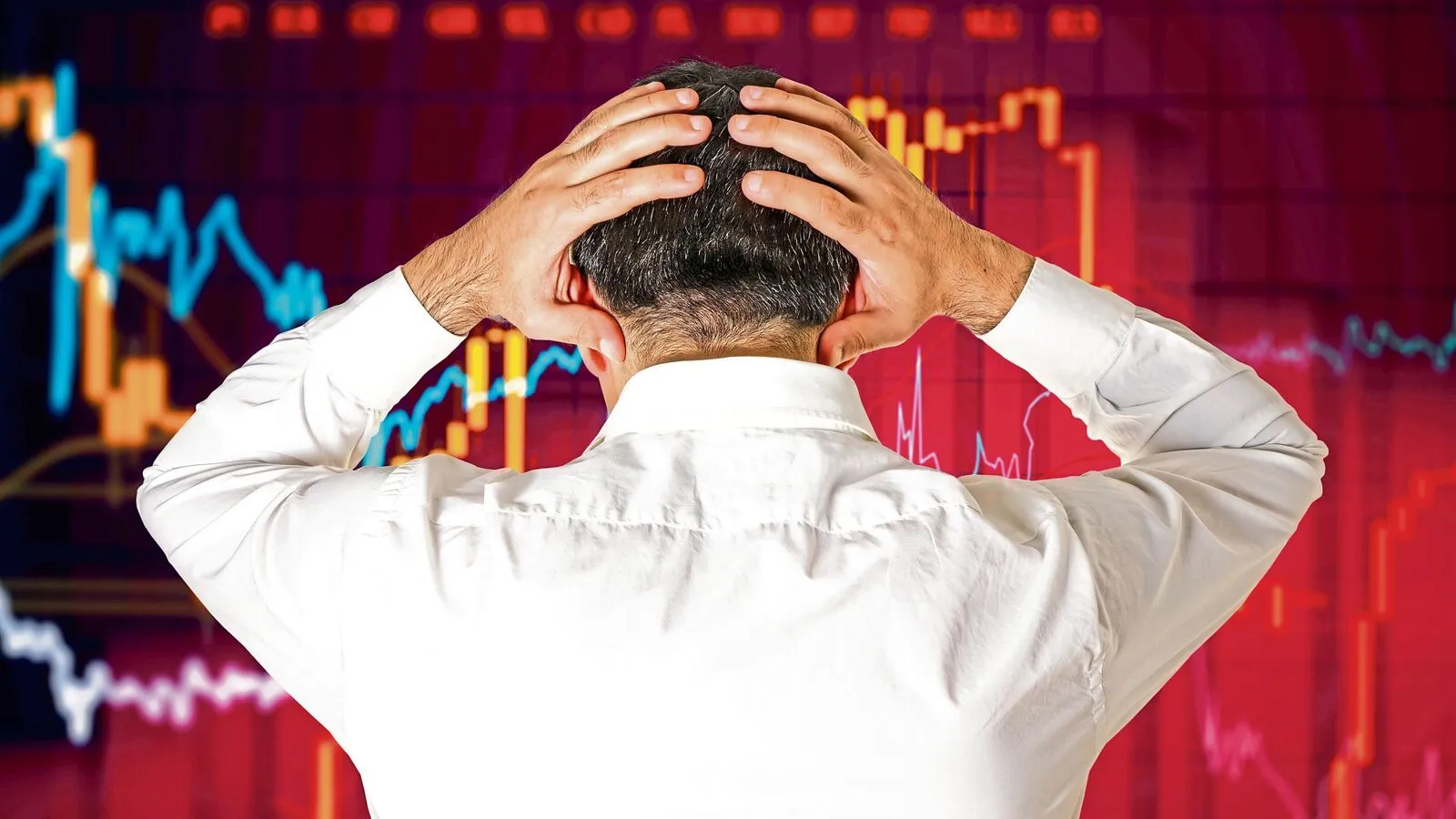How the stock market selloff could become a financial crisis

The stock market decline is on par with other crises.
Yes, it can get worse.
Global stocks are in free fall and nothing seems to be able to arrest the decline. The damage is only financial so far, but with the S&P 500 off 14% over three days based on where Sunday evening’s futures are trading, it could spread to other parts of the market. This is the moment when things start to break.
The market reaction to tariffs shouldn’t be ignored. The Bear Trap Report’s Larry McDonald compared it to the weekend in 2008 when the U.S. government let Lehman Brothers fail, turning what had been a run-of-the-mill recession into a financial crisis. “In September 2008, they chose to shoot Lehman in the head and they thought the consequences would be manageable,” McDonald writes. “Trump team—same deal, exponential uncertainty, 1000 known unknowns. Markets cannot process that.”
Trump and administration officials, however, don’t seem all that worried despite accelerated selling in stocks. Treasury Secretary Scott Kenneth Homer Bessent on NBC cited March’s pre-tariff jobs number as evidence that there won’t be a recession and argued that most Americans aren’t feeling the pain of the declines all that much. “Most Americans don’t have everything in the market,” he said. “Most Americans in a 401(k) have what’s called a 60/40 account…60/40 accounts are down 5% or 6% on the year. People have a long-term view.”
Responding to a request for comment about a response to the market selloff, White House Spokesman Kush Desai responded: “The Trump administration is aligned on addressing the national emergency that President Trump has rightfully identified is posed by our country running regular trade deficits—deficits that have meant the decimation of American industry, hollowing out of American communities, and trillions of dollars of American wealth flowing into the hands of foreigners. Just as it did during President Trump’s first term, the administration’s America First economic agenda of tariffs, deregulation, tax cuts, and the unleashing of American energy will restore American Greatness from Main Street to Wall Street.”
Trump spoke to reporters on Air Force One Sunday evening. He denied he was deliberately attempting to crash the market; a video the president reposted on his own network on Friday contained that message. “No that’s not so,” he said.
Markets are interconnected. And the lower the market falls and the longer the administration goes without acknowledging that there is a problem, the bigger the risks of a major break will be. Many financial players still use “Value at Risk,” or VaR, as a risk management tool. To oversimplify, when volatility is low, VaR lets funds load up on risky assets. When volatility rises, they have to derisk, causing everyone to sell at once, exacerbating the declines. They eventually need to sell their winners, too. “In this phase, there is a significant risk of a VaR event, when even the winning trades get hurt,” write the strategists at MI2. “Hence, after their spectacular run-up over the past few months, European stocks got thumped last week, and EURUSD backed off from the highs.”
There’s also the potential for the weakness to spread to the credit markets where it has the potential to do far more damage. The risk is compounded by the fact that a lot of lending these days is done not by banks, who are under the strict supervision of regulators, but in the private markets, where about $1.5 trillion of loans sat at the beginning of 2024, according to Morgan Stanley. The stock market’s drop coupled with the economic damage that is occurring because of tariffs could cause big problems for the financial system. “Stuff comes out of the woodwork,” says BCA Research strategist Peter Berzin. “We don’t know what is going on or why borrowers were going to private credit instead of a bank.”
Traders will be watching closely for any signs of a hiccup in the Treasury markets. Remember, Treasuries are the lifeblood of the global financial system, used as collateral on both long- and short-term loans. When the financial system comes under stress, companies hoard cash, and “repo markets” can freeze up as they did in 2011 during the first debt-ceiling crisis. Worse still is the possibility the U.S. tries to force short-term Treasury holders to roll their bills into long-term bonds, an idea that has been put forward by some close to Trump. “That’s what bankrupt companies do,” Berezin says. “If you start questioning the sanctity of Treasury markets, then you are potentially causing a crisis that is worse than what we experienced in 2008.”
None of these scenarios are anyone’s base case. But not many expected Trump to impose tariffs to the extent or in the manner he did, either.
Remember: No matter how much the stock market has fallen, it can always get worse.
Matt Peterson contributed to this article.
Write to Ben Levisohn at ben.levisohn@barrons.com








